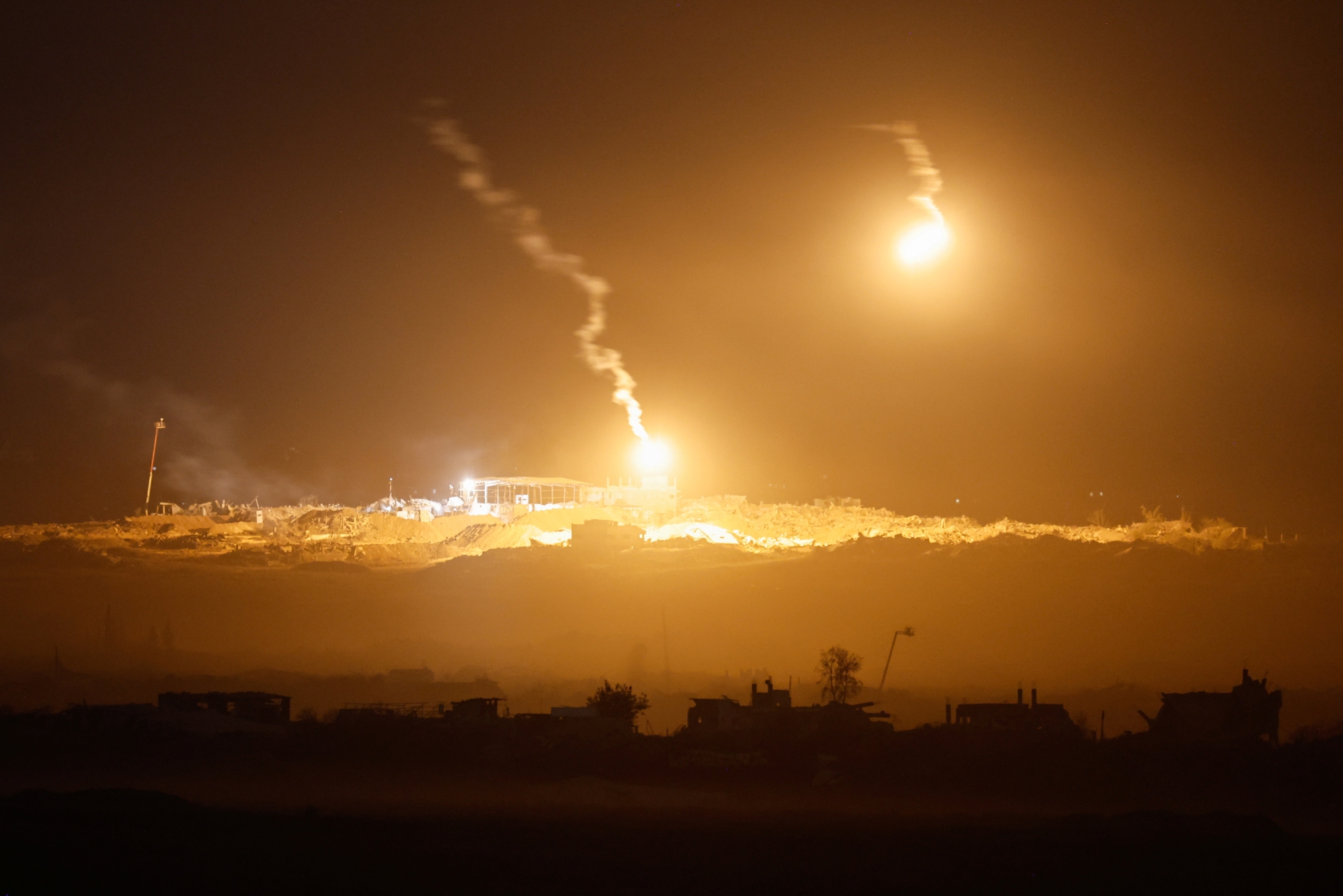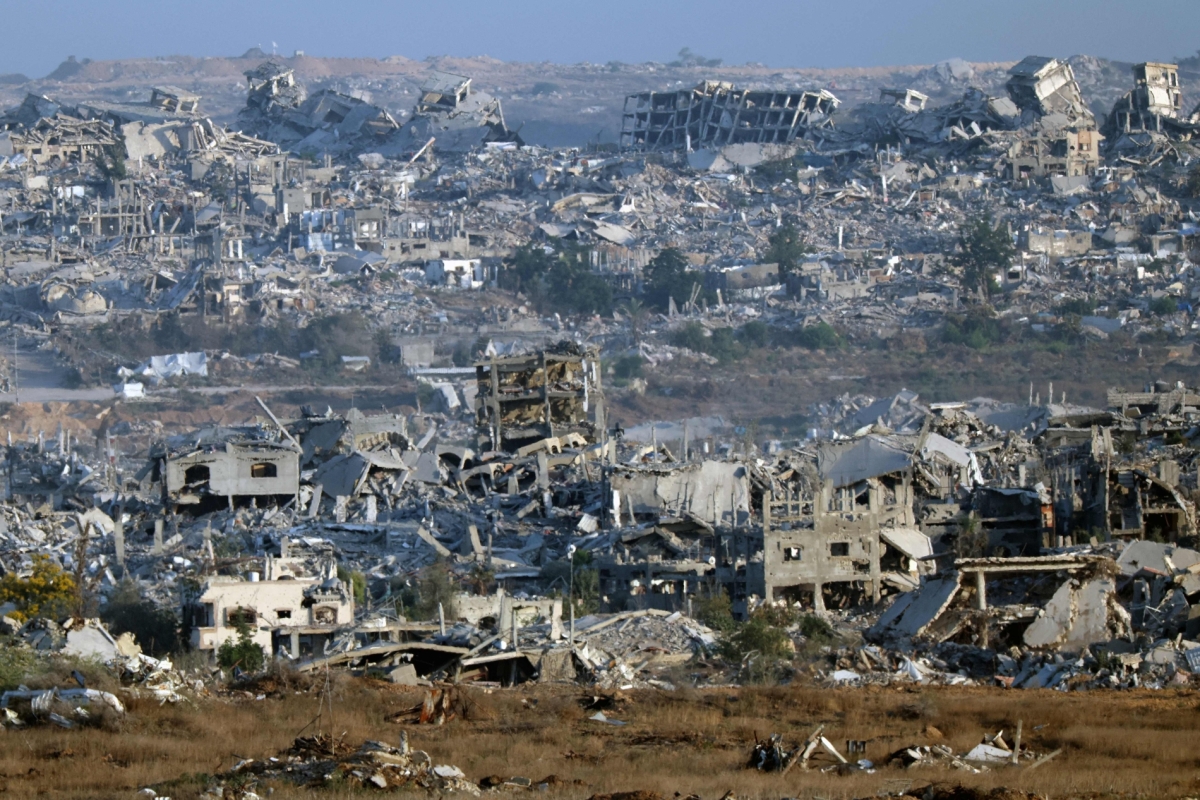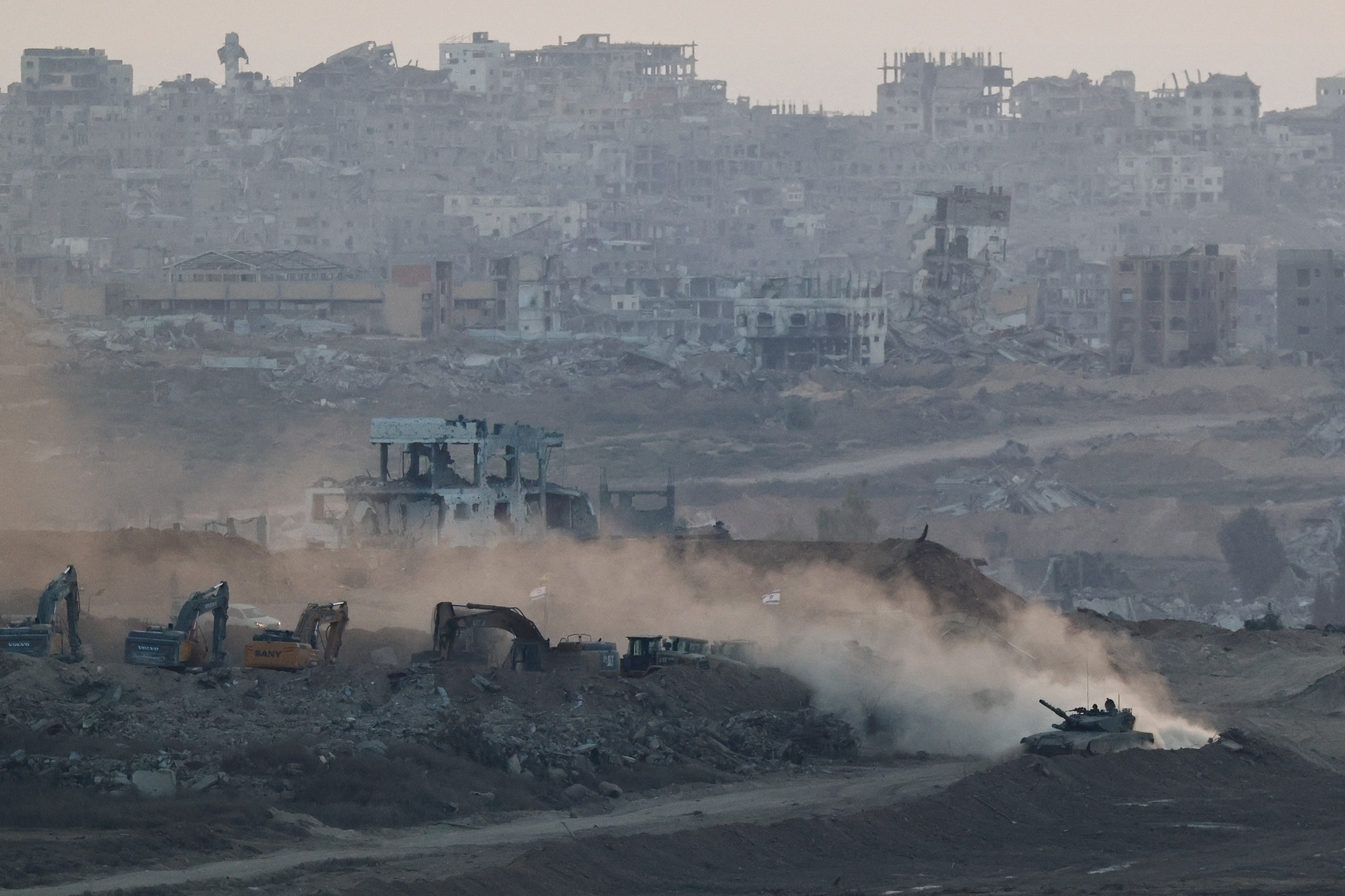Israel’s plan to establish a “concentration camp” for 600,000 Palestinians in southern Gaza causes deep concern in Egypt. If implemented, it would put yet more pressure on the already-strained relations between Cairo and Tel Aviv.
Euphemistically called a “humanitarian city” by Israeli Prime Minister Benjamin Netanyahu and Defence Minister Israel Katz, Israel’s former Prime Minister Ehud Olmert expressed it differently, calling it a “concentration camp,” while Israeli lawyers have said it would be illegal, and Israel’s Chief-of-Staff Gen. Eyal Zamir has said it would be “unworkable”.
Advocates propose to construct the camp on the ruins of the southern Gaza city of Rafah, which has been effectively razed to the ground by Israel’s brutal war. Hundreds of thousands of displaced Gazans already into a humanitarian zone in Mawasi in the south-west, near the Mediterranean Sea and the Egyptian border, will be forced into the camp after being screened.
Katz, who initially proposed the camp’s construction earlier this month, hopes to lead Gaza’s other 1.4 million residents into this heavily guarded zone later. Once in, Gazans would not be allowed to leave, unless to go abroad, under what the Israeli leadership menacingly calls “voluntary migration”.

For many, the camp would be the epitome of Israeli war crimes in Gaza, since it would entail the mass forcible transfer of a large population, subsequently depriving them of physical liberties, let alone the ethics of cramming 600,000 people into a camp measuring just 64 square kilometres.
Cleansing Gaza
The camp, or its proposal, at least finally clarifies Netanyahu’s plan for ‘the day after’ the war in Gaza. He wants to honour his supporter and benefactor, Donald Trump, by clearing the way—literally—for the US president’s “Mediterranean riviera” dream to become a reality. Netanyahu has even said that he would only end the war in Gaza to implement Trump’s plan.











